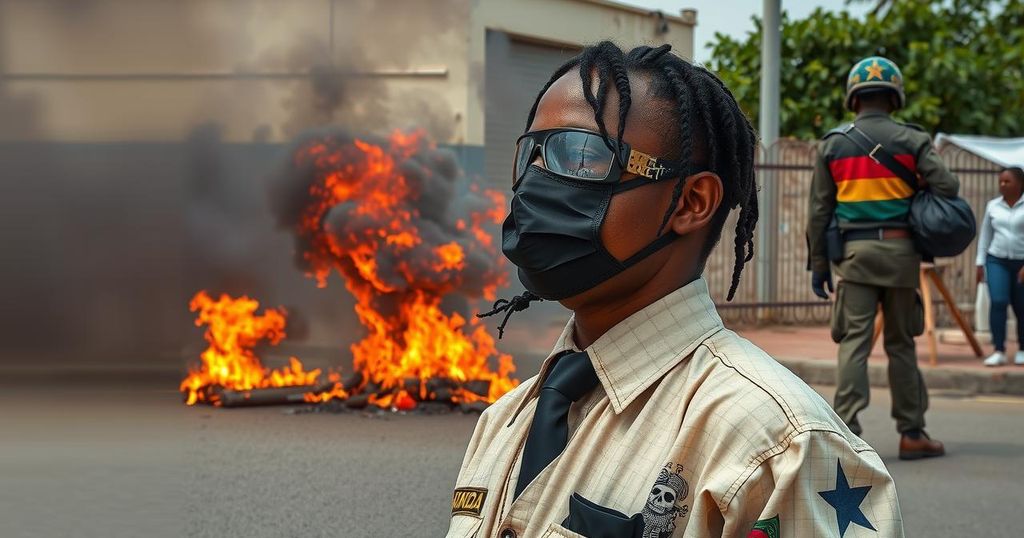Mozambique Faces Death Toll Rise Amid Post-Election Violence
Violence in Mozambique following disputed October elections has resulted in at least 90 deaths, with 3,500 detained. Protests against the ruling Frelimo party intensified after its candidate Daniel Chapo was awarded victory, which has been contested by opposition leaders. Tensions remain high and could escalate during the festive season.
In Mozambique, violent clashes have erupted following the contentious presidential elections held on October 9, resulting in the death of at least 90 individuals. According to the civil society group Plataforma Decide, these fatalities occurred between October 21 and December 5, amidst protests against the ruling Frelimo party’s victory, which has governed since 1975. Nearly 3,500 people have reportedly been detained as authorities struggle to maintain order following the election outcome, described as fraudulent by opposition parties.
The recent protests escalated on Wednesday, leading to the deaths of five individuals, with police confirming that some victims were run over or beaten, while no officers were harmed. Reports indicate that unrest is particularly concentrated in the northern city of Nampula, where demonstrators attempted to breach the governor’s residence, prompting law enforcement to use live ammunition to disperse the crowd. The upcoming confirmation of election results by the Constitutional Council is anticipated to further inflame tensions, with opposition leaders contesting the legitimacy of the electoral results, which favored the Frelimo candidate, Daniel Chapo, who allegedly secured 71 percent of the vote.
Opposition leader Venancio Mondlane has disputed these figures, claiming a separate count awarded him a significant majority of 53 percent, while Chapo received only 36 percent. Mondlane expressed concern that the wave of protests will not dissipate during the festive season, stating, “This time, all of us will not have Christmas, because the people will be on the streets.” As Mozambique approaches the inauguration of its new president, the ruler’s legitimacy remains in question, and civil unrest may continue to threaten the stability of the nation.
Mozambique has faced significant political tensions following the recent presidential elections, in which the ruling Frelimo party was declared the winner amidst allegations of electoral fraud by opposition parties. Established in 1975, Frelimo’s long-standing rule has led to deeper divisions within the country, exacerbated by violent clashes between citizens and security forces, particularly in response to perceived injustices in the election process. These events are set against a backdrop of increasing dissatisfaction with governmental authority and calls for transparency in Mozambique’s electoral systems.
The situation in Mozambique is rapidly deteriorating, as violent protests over disputed election results have resulted in numerous fatalities and mass detentions. With a significant faction of the population questioning the legitimacy of the presidency of Daniel Chapo, unrest is likely to persist, overshadowing the festive season. The opposition must confront both governmental power and popular sentiment as the nation grapples with its political future, underscoring the fragility of Mozambique’s democracy.
Original Source: www.cbs19news.com




Post Comment